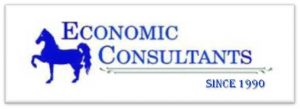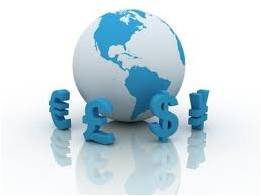In the report “World Economic Freedom 2012” from the think tank Heritage Foundation, Norway pulls down to a 40th place in the company of El Salvador and Armenia. Denmark fell out of the top 10 list to 11th place, Finland, on 17 and Sweden is at 21st place.
What really destroys for Norway is public consumption, said researcher James Roberts, who has been involved in drawing up the report, when he was a guest in Business News. He also drew attention to rigid rules for work as one of the 10 measurement parameters where Norway had significant improvement potential.
The report has four main pillars: justice, limiting government, effective regulations, and open markets. Norway is the second best in the world on property rights and on the 10th place worldwide when it comes to be corruption-free. On public consumption, Norway is no, 143, and 143rd place when it comes to having flexible rules for employers.
Norway’s economic freedom score is 68.8, making its economy the 40th freest in the 2012 Index. Its score has decreased by 1.5 points since last year, mainly reflecting a considerable deterioration in the control of government spending. Norway is ranked 20th out of 43 countries in the Europe region, and its overall score is well above the world and regional averages.
The Norwegian economy is diversified and modern, benefitting from high levels of flexibility and institutional strengths that include strong protection of property rights and an efficient legal framework. Together with openness to global commerce, prudent and transparent regulations sustain economic dynamism and a commercial environment that is innovative and resilient.
Norway dropped from “mostly free” to “moderately free” in the 2012 Index, primarily because of expansive public spending. The government has focused on containing expensive welfare programs, but government spending as a percentage of GDP rose sharply. The state maintains substantial ownership in key industries, including telecommunications and hydropower. The accumulation of assets from hydrocarbon production in the National Wealth Fund has provided a cushion for fiscal stimulus, but the central government’s structural non-oil deficit has widened.
Background
Prime Minister Jens Stoltenberg heads a labour–socialist coalition government. Norway has been a member of NATO since 1949, but voters have twice rejected membership in the European Union. Instead, the country maintains close economic interaction with EU members under the European Economic Area agreement. Norway is one of the world’s most prosperous countries. Fisheries, metal, and oil are the most important commodities. In 2010, Norway was the world’s sixth-largest oil exporter and second-largest gas exporter. It weathered the economic crisis well, thanks to substantial government savings and high oil prices, but is exposed to Europe’s economic problems since 80 percent of its trade is with EU member states. The government continues to save a large portion of its oil export revenues in investment funds outside of the country as insurance against depleting reserves.
Rule of Law
The judicial system is sound and efficient, providing secure protection of private property rights and good enforcement of commercial contracts. With consistent application of law, protection of intellectual property rights is consistent with world standards. Well-established anti-corruption measures uphold government integrity. Transparency has been an emphasis and is a key institutional asset.
Limited Government
The top income tax rate is 47.8 percent, and the corporate tax rate is a flat 28 percent. Other taxes include a value-added tax (VAT), a tax on net wealth, and environmental taxes, with the overall tax burden amounting to 41 percent of total domestic income. Government spending has risen to a level equivalent to 46.4 percent of total domestic output, but the budget balance remains in surplus due to oil revenues. Public debt is below 60 percent of GDP.
Regulatory Efficiency
The regulatory regime is highly efficient. Starting a business takes an average of seven days, compared to the world average of 30 days. Obtaining a business license requires less than the world average of 16 procedures. Bankruptcy proceedings are relatively simple. The labour market lacks flexibility, although the non-salary cost of employment is not high in comparison to other countries in the region. Monetary stability is well maintained.
Open Markets
The trade weighted average tariff rate is quite low at less than 1 percent, and non-tariff barriers are nominal and not burdensome. The investment code is transparent and efficiently administered, but domestic or European Economic Area investors are favoured. The financial sector is dynamic and competitive, although the government retains ownership of the largest financial institution, which accounts for about 40 percent of total assets.
EC Comment
Still with these bare facts in mind the Unions are putting up a fight trying to keep these old fashion reactionary regulations and urging the government to Veto the new EU directive on Temporary work.
The Norwegian leftwing government has an endless unstopping appetite for increased taxes and puts its fingers into a huge number of enterprises. The result becomes of course inefficiency and lack of inspections and audits. And when something goes wrong the consequences are next to nothing – what can you expect when you are sitting on both sides of the table.
Sources; Hegnar Media, Heritage Foundation and own comments


